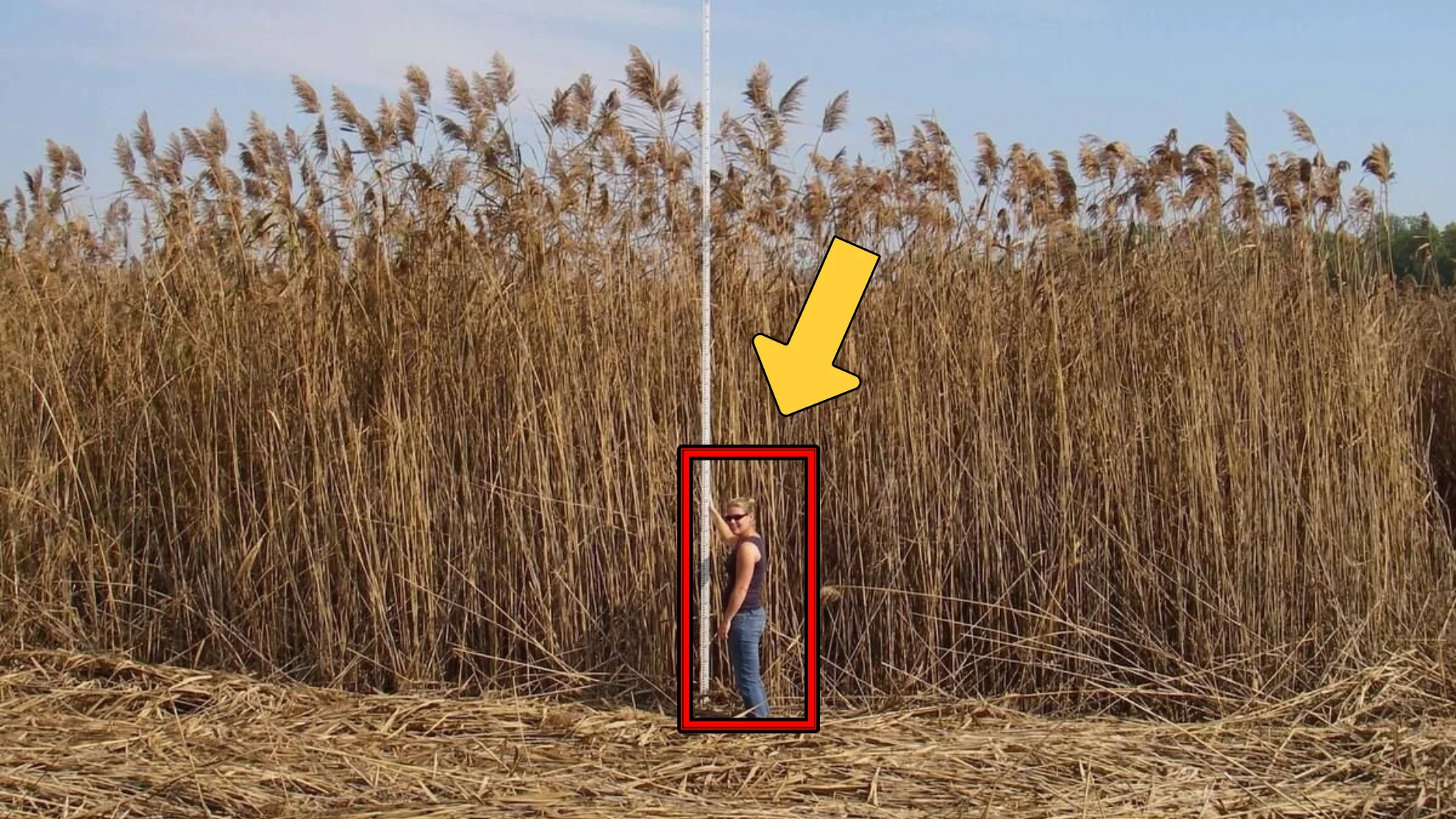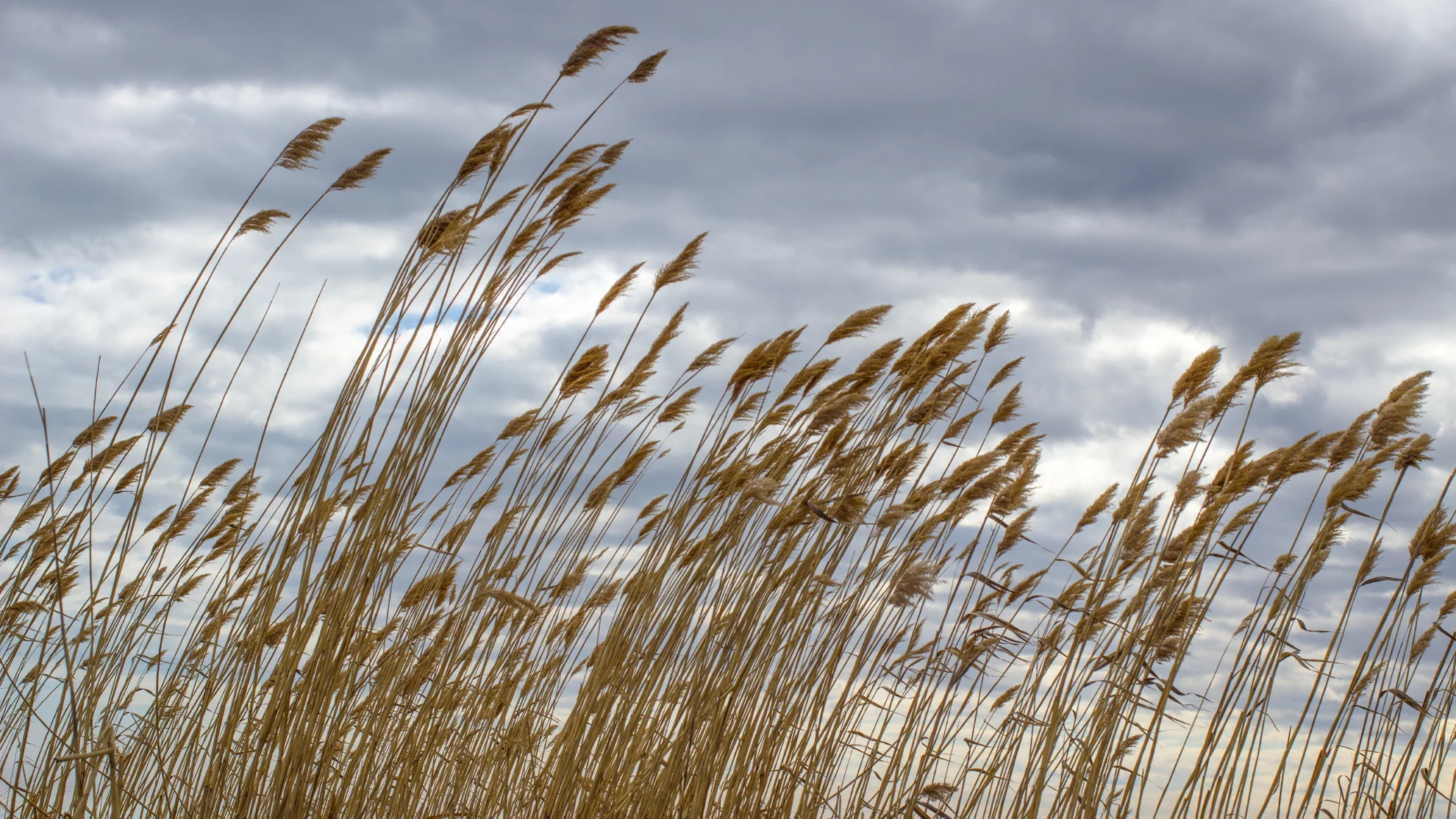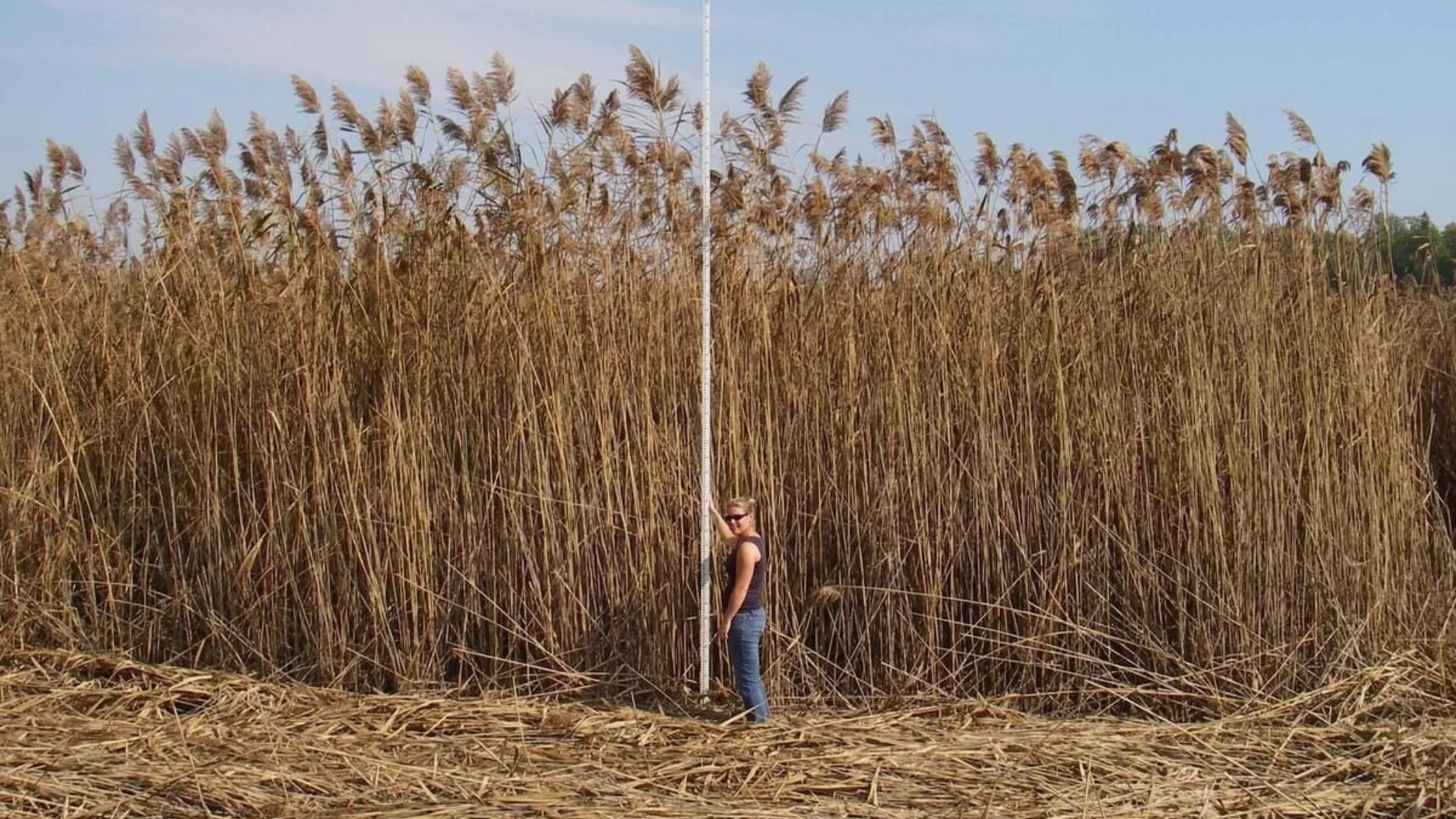
'Once you see it, you can't unsee it': The 'road-trip ruiner' plant is spreading
Ontario's 'road trip ruiner' is back.
It's found along highways, ditches, and shorelines in southern Ontario, and it can grow to staggering heights, sometimes towering more than five metres above the ground.
It's invasive phragmites, dubbed "Ontario's worst invasive plant" by Agriculture and Agrifood Canada in 2005.
Conservationists say that once you see it, you can't unsee it -- but there are a few things you can do to stop its spread.

File photo of phragmites (via Canva Pro)
But first, a bit about this dangerous species.
Phragmites (Phragmites australis australis) is described by the Invasive Species Centre as "an invasive grass with blue-green leaves and large, fluffy seedheads" that forms in tall, dense stands.
It prefers wet environments and places where water accumulates. Once settled it outcompetes native plants, hinders recreational activities, reduces visibility for motorists due to its towering height, and increases wildfire risk.
It's originally from Europe, and experts believe it came to Canada on European ships, through ballast material or attached to packing materials.
In southern Ontario, seeds spread by hitching a ride on boats, bicycles, hiking boots, and ATVs, among other things.

File photo highlighting how tall phragmites can get.(JM Gilbert/Ministry of Natural Resources)
The 'road trip ruiner'
The Ontario Phragmites Action (OPA) program has dubbed the plant the 'road trip ruiner' and is urging the public to take action to stop the spread of phragmites this summer.
The joint initiative by the Invasive Species Centre, the Nature Conservancy of Canada, and other provincial partners says people can help by:
Learning how to identify invasive phragmites.
Cleaning recreational equipment (hiking boots, bikes, ATVs/UTVs, and boats) before moving to another location.
Reporting phragmites sightings through EDDMapS or iNaturalist.
If you have phragmites on your property, do not mow it: this can help spread seeds. Ontario Invasive Species Council has put together a PDF guide on how to manage phragmites (disposal recommendations start at page 62 of the linked document).
Oh, and by the way: goats love phragmites. If you're looking for an environmentally-friendly way to rid yourself of the plants, consider hiring a herd to mow down the problem. Your lawn will be phragmite free, the goats will be fed, and you'll get to hang out with friendly farm animals for a bit.
Everybody wins.
